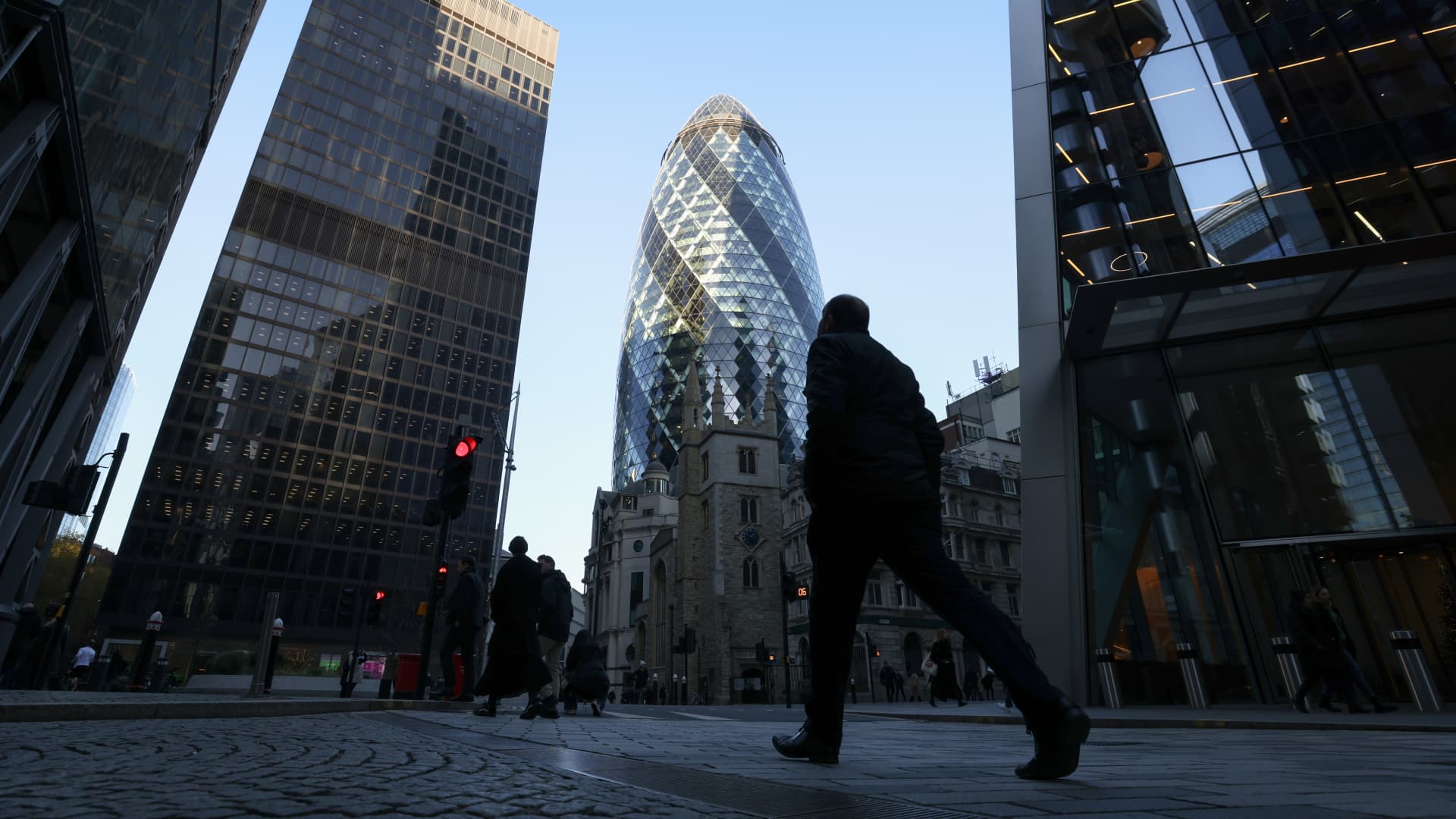LONDON – British inflation fell sharply in April as energy prices retreated and the impact of Russia’s invasion of Ukraine began to fade from annual consumer price comparisons.
Headline CPI inflation was 8.7 percent, the ONS said on Wednesday, down from 10.1 percent in March but higher than the 8.2 percent consensus forecast in a Reuters poll of economists.
The ONS said in its report: “Electricity and gas prices contributed 1.42 percentage points to the fall in annual inflation in April, as the increase in April last year disappeared from the annual comparison, but this part still contributed to annual inflation. 1.01 percentage points.”
“Food and non-alcoholic beverage prices continued to increase in April, leading to high annual inflation, however, the annual food and non-alcoholic beverage inflation rate fell from 19.2% in March 2023 to 19.1% in March 2023. One year to April 2023.”
However, the ONS said its indicative model estimates showed that annual inflation in food and non-alcoholic beverages remained the second highest in 45 years.
On a monthly basis, consumer prices rose 1.2%, above the consensus estimate of 0.8%.
The consumer price index, which includes owner-occupier housing costs (CPIH), rose 7.8% in the 12 months to April 2023, down from 8.9% in March, while core CPI (which excludes the volatile energy , food, alcohol and tobacco prices) rose 6.8%, up from 6.2% in March, which will affect the Bank of England.
U.K. inflation remained stubbornly high despite the economy beating recession expectations, prompting the Bank of England to raise interest rates for the 12th time in a row to 4.5% at its final meeting earlier this month.
Economists widely expect further rate hikes at the next meeting, as inflation in the UK remains thornier than in comparable major economies, while the labor market remains tight, with Governor Andrew Bailey warning of a wage-price spiral.
On Tuesday, Bailey acknowledged to lawmakers that “very important lessons can be learned” from the central bank’s failure to predict the intensity and persistence of inflation.
Workers from all walks of life have staged massive strike action in recent months amid disputes over wages and working conditions as British households continue to grapple with high food and energy bills.
The direction is right, but there is a long way to go
Suren Thiru, director of economics at the Institute of Chartered Accountants in England and Wales, said the return to single-digit headline interest rates suggested Britain had “turned the corner” in its fight against inflation.
He expects more sharp falls over the summer, as Britain’s energy regulator Ofgem is expected to lower its energy price cap, driving down electricity prices from July.
“The drag on customer demand from a cooling job market, the lagged impact of higher taxes and rising interest rates could mean that inflation falls faster than the BoE forecasts,” he said.
“Inflation fell in April enough for the MPC to keep rates on hold next month, but if they continue to risk overtightening, it could exacerbate the cost of living crisis and squeeze on businesses.”
Richard Carter, head of fixed-rate research at Quilter Cheviot, said Wednesday’s drop showed things were moving in the “right direction,” but noted there was still “a very long way to go” as inflation remained “alarmingly high.”
However, Carter said such a sharp downturn was unlikely in the coming months, especially if the IMF’s recent forecasts of a more resilient UK economy were accurate.
“While the Bank of England has not committed to the end of its rate hike cycle in terms of interest rates, it will be relieved to see inflation finally back down,” Carter said.
“As long as wage growth continues to grow, the option of further rate hikes remains firmly on the table – especially if core inflation remains high.”


